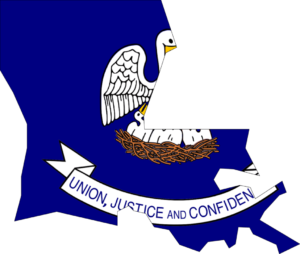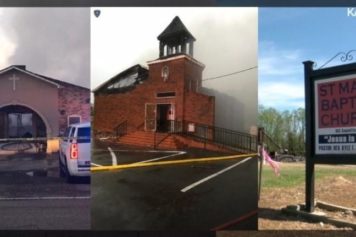
Source: Pixabay
What becomes of the poor when they are unable to afford access to justice? This question is being put to the test in the state of Louisiana with disastrous results. Although the U.S. Constitution guarantees a right to counsel, too often this does not happen in practice, raising concerns the laws are not worth the paper on which they are written.
Louisiana’s public defender system is dead on arrival. As Atlanta Black Star reported in 2016, a financial crisis in the state brought about by former Gov. Bobby Jindal has led to a criminal justice crisis — the collapse of the system of public defenders that serves 250,000 indigent people in criminal cases. As a result, people who are caught in the system — some of whom are innocent of any crime — go unrepresented. Even so, with the state unable to pay attorneys, many defendants will plead guilty in the absence of legal assistance. As The Daily Beast reported, Louisiana is the only state that funds its public defenders through fines and fees rather than taxes. In the Bayou State, 85 percent of people in prison are poor, while Black people are locked up at a rate fully four times higher than whites. Last year, the median amount spent per case was $238, and three-quarters of public defenders have simply stopped taking new cases.
This situation is particularly dire in light of the extremely high rate of incarceration in Louisiana. In 2015, Louisiana ranked first in the nation in its rate of imprisonment, according to the U.S. Bureau of Justice Statistics, with 36,347 people in prison, or 776 per 100,000. The second highest is Oklahoma, with 715, followed by Alabama (611) and Mississippi (609). Given that the U.S. has the highest incarceration rate in the world, this means Louisiana leads the world in imprisoning people. Putting this in perspective, Japan has a rate of 62, China 118, England 148, Brazil 193 and South Africa 334, according to the International Centre for Prison Studies.
Responding to this crisis, civil rights lawyers filed a class action suit in February on behalf of 13 plaintiffs claiming Louisiana has systematically denied poor people a right to counsel in criminal cases. That right was established in 1963 with the Supreme Court case Gideon v. Wainwright. The lawsuit — filed by the Southern Poverty Law Center (SPLC), Lawyers’ Committee for Civil Rights Under Law, Davis, Polk & Wardwell LLP, and Jones Walker LLP — claims that the poor in Louisiana do not stand “equal before the law.” The state public defense system is characterized as “in shambles,” “chronic[ally] underfunded,” “hopelessly underfunded,” “a systematic failure by any measure,” “on the verge of collapse,” “beyond the crisis stage,” “terrible” and “abysmal.” The complaint also claims the system is so depleted of resources that plaintiffs who are fortunate enough to see a lawyer must languish for months in jail. There are no attorneys at all for less-serious offenses. One of the plaintiffs, Michael Carter of Baton Rouge, said he waited in jail for 18 months without a visit from his lawyer, although he is facing as much as 20 years in prison.
The challenges facing these plaintiffs was further illuminated in a report released in February called The Louisiana Project, a joint study by the American Bar Association and Baton Rouge-based accounting and consulting firm Postlethwaite & Netterville. The report found that Louisiana has one-fifth as many public defenders as it needs, and the public defense system has the capacity to handle only 21 percent of its annual workload. In 2016, Louisiana employed 363 full-time public defenders, when an estimated 1,769 were needed to provide “reasonably effective assistance of counsel pursuant to prevailing professional norms” in Louisiana.
“This study demonstrates beyond question that Louisiana public defenders are daily put in grave jeopardy of violating their professional responsibility to provide competent counsel,” said ABA president Linda A. Klein, as reported by The Times-Picayune. Klein added that ABA policy and established legal principles support public defenders seeking relief from excessive workloads. According to the report, a public defender service provider’s workload should not be so great as to result in a breach of ethical obligations or interfere with the rendering of quality legal representation. Otherwise, public defenders are obligated to decline additional cases. “Courts, in turn, should provide relief when excessive caseloads threaten to lead to representation lacking in quality or to the breach of professional obligations,” she added. “To do otherwise not only harms individual defendants, but our entire justice system.”
Despite the common perception that so-called criminals have more rights than victims, the fact remains that everyone is innocent until proven guilty and everyone has a right to counsel. That thousands are not receiving their due because they are Black and poor means they are the victims of injustice. Louisiana has found itself engulfed in a constitutional crisis with nationwide implications.

